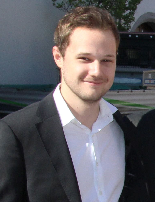M.Sc. Michael Anders

| Room | INF 205 2/229 | |
| Phone | +49 (0) 6221 / 54 - 14366 | |
| Fax | +49 (0) 6221 / 54 - 14361 | |
| michael.anders(at) informatik.uni-heidelberg.de | ||
| Office hours | by appointment |
Michael Anders is a PhD Student in the Software Engineering group of Prof. Dr. Barbara Paech, Heidelberg University, Institute of Computer Science.
He holds a bachelor's and a master's degree in Applied Computer Science from Heidelberg University.
His current resarch focus is relating user feedback to requirements through the use of Machine Learning, Deep Learning and Large Language Models.
Publications
- Schrieber H, Anders M, Paech B, Schneider K, A Vision of Understanding the Users’ View on Software Joint Proceedings of REFSQ-2021 Workshops, OpenRE, Posters and Tools Track, and Doctoral Symposium, Essen (Germany)/Virtual, April 12, 2021, PDF download
- Anders, M., Obaidi, M., Paech, B., Schneider, K. (2022). A Study on the Mental Models of Users Concerning Existing Software. In: Gervasi, V., Vogelsang, A. (eds) Requirements Engineering: Foundation for Software Quality. REFSQ 2022. Lecture Notes in Computer Science, vol 13216. Springer, Cham. https://doi.org/10.1007/978-3-030-98464-9_18
- Anders, M. Relating User Feedback and Existing Requirements. In: Joint Proceedings of REFSQ-2023 Workshops, Doctoral Symposium, Posters & Tools Track and Journal Early Feedback co-located with the 28th International Conference on Requirements Engineering: Foundation for Software Quality (REFSQ 2023). REFSQ-JP 2023
- M. Anders, M. Obaidi, A. Specht and B. Paech, "What Can be Concluded from User Feedback? - An Empirical Study," 2023 IEEE 31st International Requirements Engineering Conference Workshops (REW), Hannover, Germany, 2023, pp. 122-128, doi: 10.1109/REW57809.2023.00027.
- Anders, M., Paech, B., Bockstaller, L. (2024). Exploring the Automatic Classification of Usage Information in Feedback. In: Mendez, D., Moreira, A. (eds) Requirements Engineering: Foundation for Software Quality. REFSQ 2024. Lecture Notes in Computer Science, vol 14588. Springer, Cham. https://doi.org/10.1007/978-3-031-57327-9_17
- Anders, M., Paech, B. (2025). FeReRe: Feedback Requirements Relation Using Large Language Models. In: Hess, A., Susi, A. (eds) Requirements Engineering: Foundation for Software Quality. REFSQ 2025. Lecture Notes in Computer Science, vol 15588. Springer, Cham. doi.org/10.1007/978-3-031-88531-0_7

